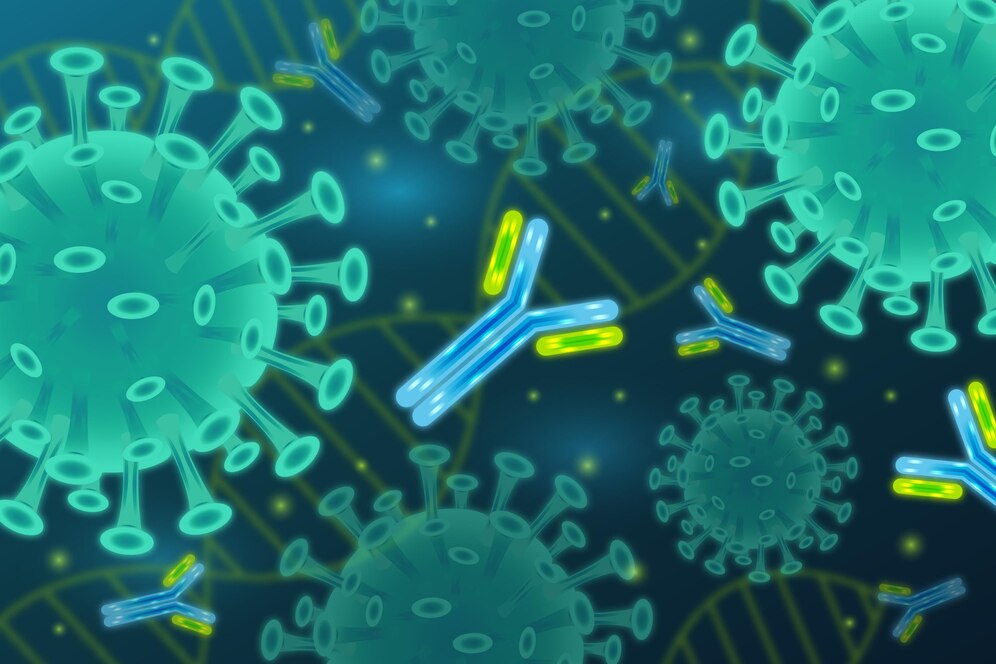Antibody Fragmentation Analysis
The application of monoclonal antibodies (mAbs) as therapeutic agents has significantly increased over the past two decades. Extensive characterization of therapeutic mAbs is required to ensure product quality and consistency throughout pharmaceutical development. Especially, fragmentation of mAbs is one of the major degradation pathways and is a critical quality attribute that needs to be monitored to assess the purity and integrity of the protein. Creative Biolabs now offers antibody fragmentation analysis services as part of our antibody impurity analysis service portfolio.
Introduction to Antibody Fragmentation
 Distributed under Freepik License, from Freepik. Fragmentation is a very general term that usually pertains to disruption of a covalent bond in a protein as a result of either spontaneous or enzymatic reaction. Enzymatic antibody fragmentation is often intentionally performed to obtain useful antibody fragments for different applications. Under physiological conditions, however, different sites of the antibody can become prone to fragmentation as a function of amino acid sequence with low intrinsic chemical stability, the flexibility of the local structure, solvent conditions (pH, temperature), and the presence of metals (e.g., copper ions) or radicals. Common amino acid residues that are susceptible to fragmentation include Asp, Gly, Ser, Thr, Cys, and Asn. The fragmentation can occur at different regions of the mAb, including hinge region, constant immunoglobulin domains, and variable domains. Fragmentation in the hinge region may lead to the production of Fab fragment and Fc-Fab fragment, causing potential functional alterations. Fragmentation in the constant regions of mAbs may have an effect on either the Fc-mediated effector function or on the circulation half-time. When occurring in the CDR region, it is likely to have an effect on the binding of the mAb to the target and impact its potency. Finally, fragmentation may impact the aggregation rates of mAbs, leading to potential immunogenicity.
Distributed under Freepik License, from Freepik. Fragmentation is a very general term that usually pertains to disruption of a covalent bond in a protein as a result of either spontaneous or enzymatic reaction. Enzymatic antibody fragmentation is often intentionally performed to obtain useful antibody fragments for different applications. Under physiological conditions, however, different sites of the antibody can become prone to fragmentation as a function of amino acid sequence with low intrinsic chemical stability, the flexibility of the local structure, solvent conditions (pH, temperature), and the presence of metals (e.g., copper ions) or radicals. Common amino acid residues that are susceptible to fragmentation include Asp, Gly, Ser, Thr, Cys, and Asn. The fragmentation can occur at different regions of the mAb, including hinge region, constant immunoglobulin domains, and variable domains. Fragmentation in the hinge region may lead to the production of Fab fragment and Fc-Fab fragment, causing potential functional alterations. Fragmentation in the constant regions of mAbs may have an effect on either the Fc-mediated effector function or on the circulation half-time. When occurring in the CDR region, it is likely to have an effect on the binding of the mAb to the target and impact its potency. Finally, fragmentation may impact the aggregation rates of mAbs, leading to potential immunogenicity.
Analytical Tools for Fragmentation Analysis
Due to the potential influence of antibody fragmentation on the properties and performance of mAb products, different analytical methods should be used to detect and analyze any fragmentation events. For this purpose, various techniques can be provided by Creative Biolabs:
- Size-based methods: they can separate the antibody fragments based on the size of the molecule. These methods include size-exclusion chromatography (SEC), sodium dodecyl sulfate-polyacrylamide gel electrophoresis (SDS-PAGE), and capillary electrophoresis with SDS (CE-SDS). SEC provides fragmentation information mainly in the hinge region, while SDS-PAGE or CE-SDS provides an excellent approach to monitor overall fragmentation in mAbs.
- Other methods: we can combine various types of chromatography with mass spectrometry (MS) methods to detect fragments, identify cleavage sites, and detect degradations of amino acid side chains.
Features of Our Services
- Perform detailed characterization using a diverse range of analytical techniques
- Investigate the effect of fragmentation on antibody efficacy and functions using our established antibody function assays
- Tailored analytical services to meet different client requirements
- Investigate antibody fragmentation events under forced degradation conditions
As a world-leading CRO and well-recognized expert for therapeutic antibody development, characterization, and manufacturing, Creative Biolabs can give a comprehensive characterization of your candidate mAbs in terms of their structure, modifications, aggregation, stability, and purity to aid in Hit characterization, manufacturability assessment, and formulation development. If you are interested in our services, please contact us to discuss your requirements.
For Research Use Only.
